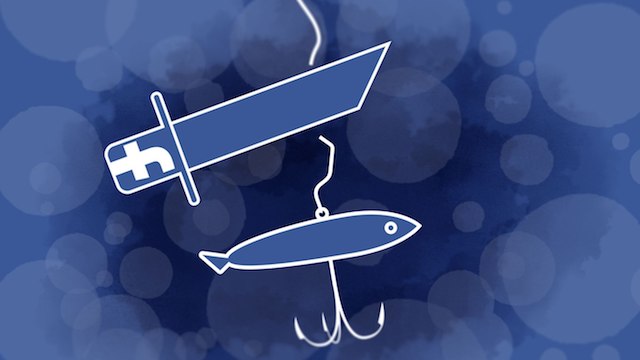The Daily Crunch 11/22/16 Students lack a nose for real news, Uber rolls on in emerging markets and Facebook's Aquila accident. All that and more in The Daily Crunch for November 22, 2016. And if you're the CEO of a food startup, maybe start looking around for a backup plan. 1. Students struggle with media literacy Just this past Sunday I theorized media literacy education might be a big part of the problem we're seeing now with fake news picking up steam on platforms like Facebook, and now it seems borne out by a Stanford study. The study found that most middle school students can't tell the difference between actual news stories and sponsored content. Fake news also isn't easily picked out by the students in this study, which is a very worrying sign. As I said Sunday, education reform isn't an easy problem to get your hands around, but startups could start thinking about how to supplement the media literacy learning gap. 
2. Uber continues its emerging markets push Uber may have called the fight in China, selling its interests there to rival Didi, but it's still exploring emerging markets in South Asia, including Bangladesh. It rolled out in the country today, with a duet in the capital city of Dhaka. Meanwhile, rivals in some of these markets, like Ola in India, are stepping up their efforts to compete. 3. Facebook's internet drone took a dive Facebook conveniently minimized an incident that occurred at the end of its inaugural Aquila internet delivering drone test when it revealed the pilot flight. The drone actually had a "structural failure" at the tail end of the first flight that is now being investigated by the NTSB. Accidents happen, of course, but if this is the kind of accident where a giant drone can go down without much warning it'll require a lot of scrutiny before Aquila soars again. 4. Google's DeepMind has another tie-up with Britain's health care system Public health means more or less consistent data practices across medical service providers, which makes Britain's NHS a great test bed for Google's DeepMind Health, which is part of the AI company's attempt to build a preventative medicine system based on machine learning. This agreement will see the two deploy an app called Streams in early 2017 that can provide healthcare advice. It uses a lot of data, which has caused scrutiny in the past, but changing data for service has always been the deal. 5. Another day, another CEO shakeup at a food startup Oh look, food startup has difficulties and brings in a new CEO. How novel. Truly original. 6. Stop me if you've heard this one before... One drop of blood, a litany of medical tests: It's a very tantalizing proposal. But it may also be pure fantasy. This isn't Theranos making the claim; it's a competitor (if you can actually compete with an ongoing tire fire) called Genalyte. I've been told by people in the field I respect immensely that deriving meaningful results from a pinprick of blood is clinically impossible, but hey, investors wouldn't make the same mistake twice, right? Right? 7. Tesla and SolarCity made this whole island solar and self-sufficient Having to generate all your energy from diesel-burning generators is a real drag, especially when the only way to get that diesel is to ship it in via container. But American Samoa's Ta'u island no longer needs to rely on diesel to drive its power needs, since Tesla and SolarCity created a microgrid system that provides nearly 100 percent of its fuel needs. These two companies are going to do big things now that they're one and the same. |